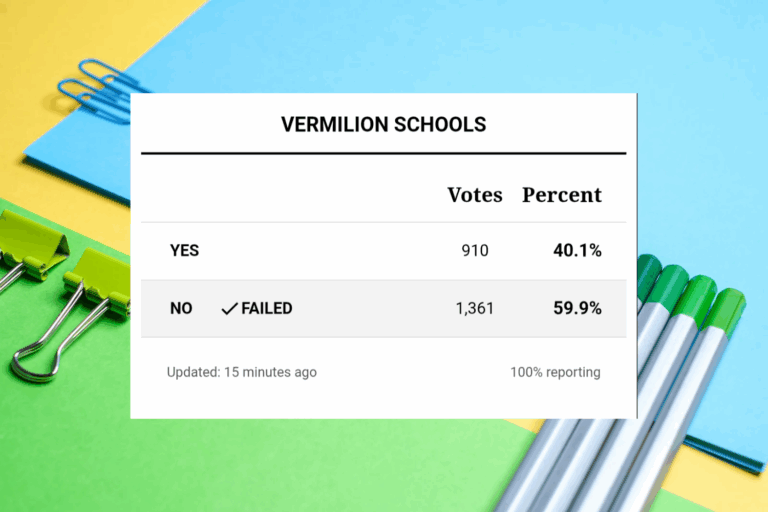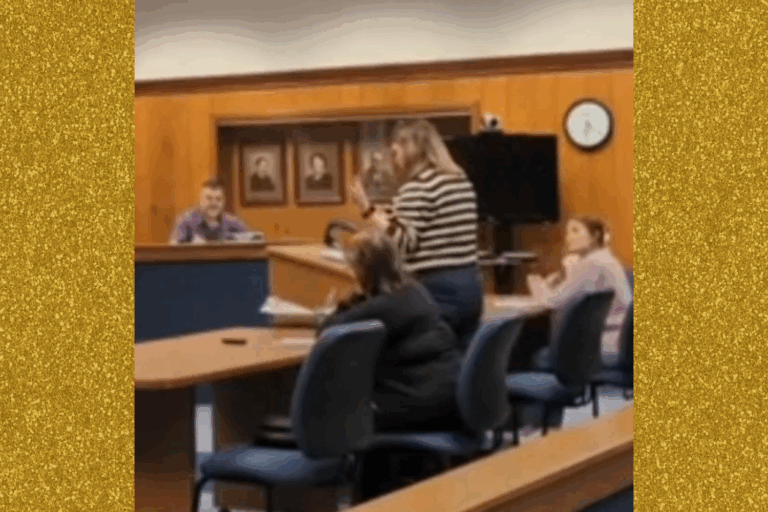
New Ohio laws bring challenges to the VLSD
Ohio Governor Mike DeWine recently signed House Bill 8 into law, creating new mandates for schools and families across the state. The law introduces significant changes, including mandatory parental notifications on health care and “sexuality content” lessons, as well as a provision for religious release time during school hours. These adjustments are raising questions about their impact on education, parental rights, and local school policies. For families in Vermilion, understanding these changes is key to navigating the evolving educational landscape.
Parental Notification: A New Statewide Requirement
One of the core components of House Bill 8 is the requirement for schools to notify parents about lessons involving “sexuality content” or changes to a student’s health care. In Vermilion, this may seem like a non-issue at first glance. Superintendent Dr. David Hile confirms that “sexuality content” is not part of the district’s curriculum, stating, “These things are not occurring in our classrooms as lessons.”
However, the law compels school boards across the state to adopt new policies ensuring compliance. Vermilion families should know that, while this law formalizes certain rights, the district has long allowed parents to opt their children out of lessons they find objectionable, such as evolution. When this occurs, students are provided alternative assignments. While the law may not require significant changes in Vermilion, it adds a layer of regulation that formalizes existing practices.
Religious Release Time: A Controversial Addition
Another major aspect of House Bill 8 is the provision allowing students to leave school during the day for religious instruction. Vermilion Local Schools will need to adjust to accommodate this new requirement. According to Dr. Hile, elementary principal Matt Malear will create a schedule to minimize instructional disruption for students who opt to participate.
This accommodation, however, poses logistical challenges. Students entering and leaving during the school day can disrupt classroom continuity and affect the overall learning environment for their peers. Dr. Hile and several board members have expressed their opposition to using mandatory educational hours for religious release time, citing concerns about lost instructional time.
“There are 8,760 hours in a year, and schools only have students for approximately 1,100 of those hours,” Dr. Hile emphasized. “That leaves 7,660 hours for parents to provide religious instruction for their children. We do not believe it is appropriate to use mandatory educational hours for something that can easily be done before or after school.”
Local Concerns vs. Statewide Mandates
The implementation of House Bill 8 highlights a larger tension between state legislation and local control. Vermilion’s school board previously debated the introduction of religious release time programs, such as LifeWise Academy, and opted against it. This decision followed a democratic process, with input from the community, and reflected the board’s commitment to prioritizing instructional time.
Now, the new law overrides local decisions, requiring compliance with a one-size-fits-all approach. Dr. Hile expressed frustration with this erosion of local governance, stating, “The state legislature should respect the local democratic process and not foist one-size-fits-all legislation on local communities.”
For Vermilion, this means implementing changes that the district leadership previously rejected, raising questions about the broader implications of state control over local school policies.
The State’s Perspective
Proponents of House Bill 8 argue that the legislation is necessary to increase parental involvement and protect religious freedoms. Supporters believe that parents have a right to know about sensitive topics being taught in schools and to ensure that their children receive education aligned with their values.
However, critics warn of potential unintended consequences. The parental notification requirements, for instance, have drawn criticism from LGBTQ+ advocates, who fear that they could lead to “forced outing” of students. Additionally, mandating religious release time could lead to unequal educational opportunities for students who opt out, as they may miss valuable classroom instruction.
What Vermilion Families Should Expect
For parents in Vermilion, the new law reinforces the importance of staying informed and involved in their children’s education. While the district adjusts its policies to comply with state mandates, families should be aware of their rights under the law. This includes the ability to opt children out of lessons they find inappropriate and to enroll them in religious release time programs.
However, parents should also weigh the potential impact of these choices. Missing classroom instruction for religious release time could affect a student’s academic progress, while opting out of lessons may require additional communication with teachers to ensure alternative assignments are completed. Open dialogue with school administrators will be key to navigating these changes.
Aftermath
House Bill 8 represents a significant shift in the balance of parental rights, local control, and state mandates. For Vermilion Local Schools, the challenge lies in implementing these changes while preserving the district’s commitment to quality education. As Superintendent Hile and the school board work to adapt, parents must stay engaged and informed to make decisions that best serve their families.
The broader debate over House Bill 8 reflects ongoing questions about the role of the state in local governance and the importance of empowering parents while respecting the needs of all students. For Vermilion, the focus remains clear: ensuring that every child succeeds today, tomorrow, and beyond.






